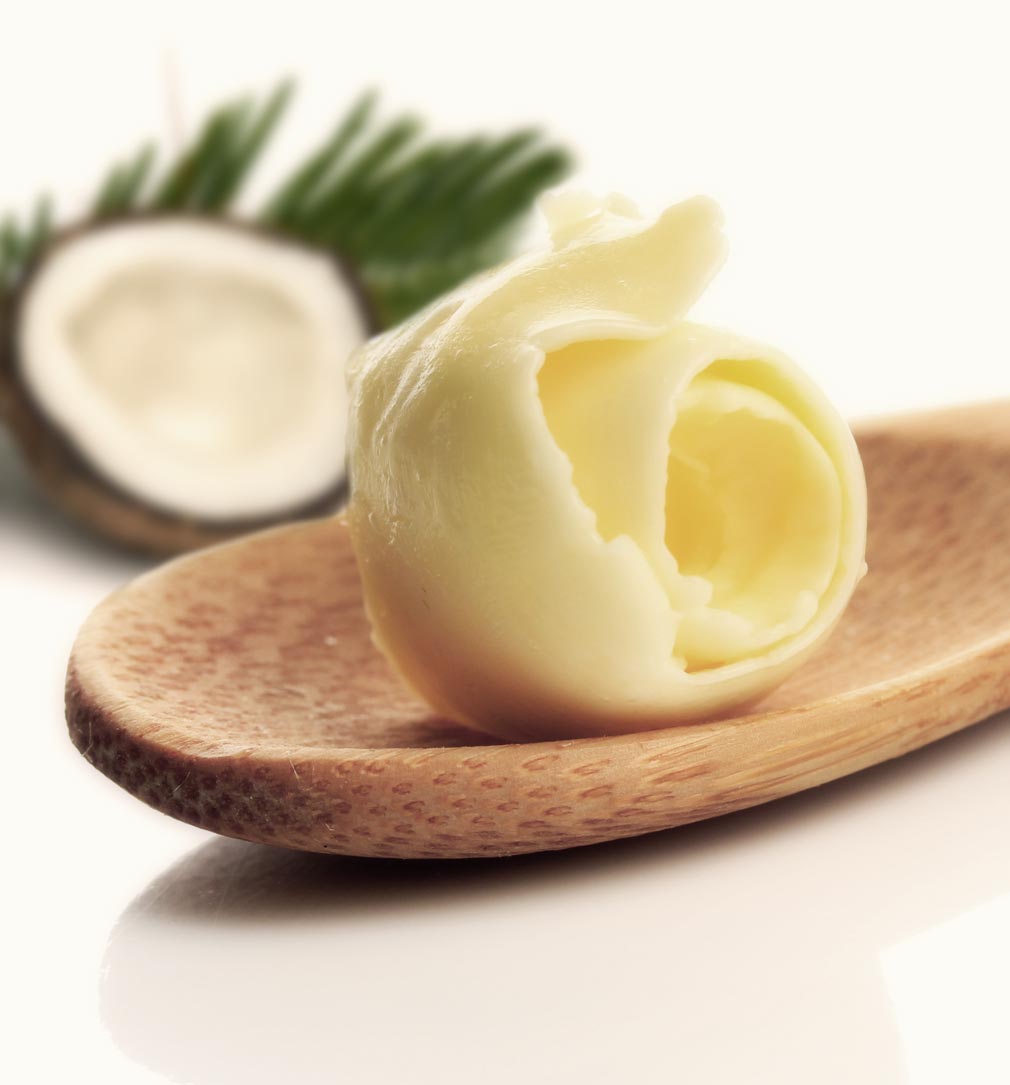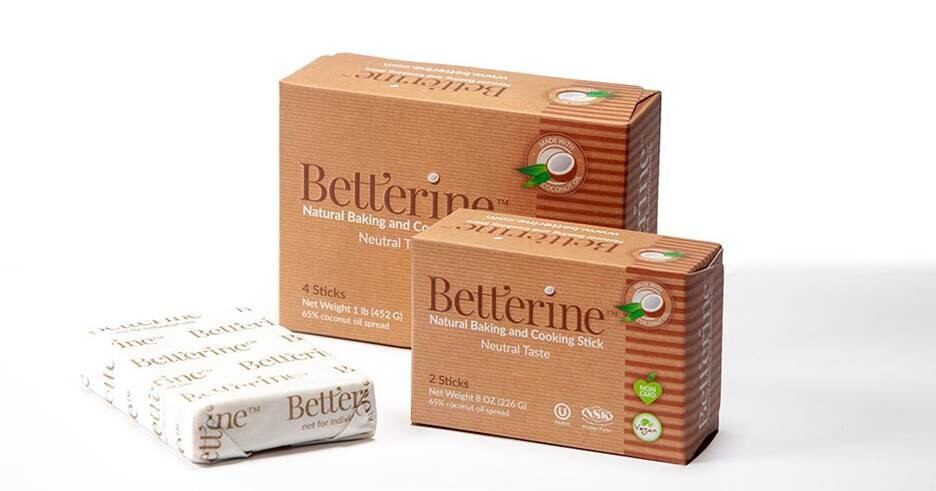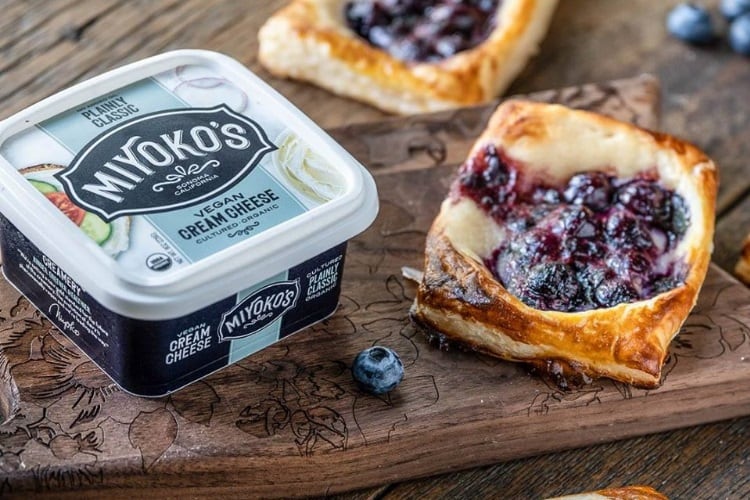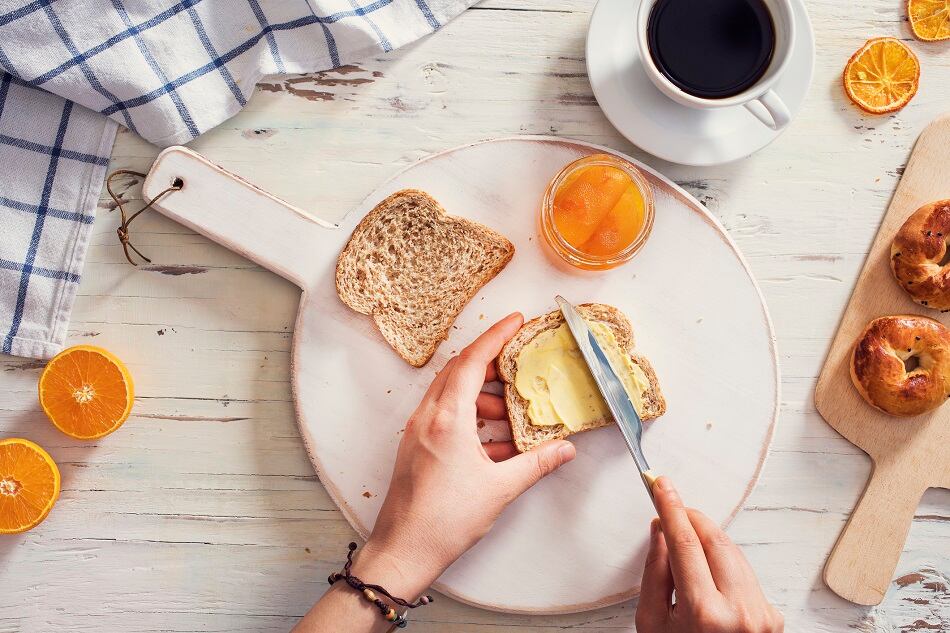Betterine is Amarlane Foods’ debut product line available as a finished product to consumers (in a two-stick package format, and later, launching a spread and whipped cream products) and as an ingredient for food manufacturers.
“We started as a company looking to solve the fundamental issues that are holding back regular products from the mass market from being natural,” Betterine president Akiva Stern told FoodNavigator-USA.
“After doing some research we realized that the emulsified fat issue is a key issue that affected baked goods, whipped goods, ice cream, etc.”
While there are now several clean label vegan butter alternatives on the market from firms such as Miyoko's Creamery and Melt Organics, Stern claimed that there hasn’t been a functional, natural, plant-based butter alternative to butter in which the water and oil did not separate when exposed to high temperatures.
And while many plant-based spreads function just fine when spread on toast, they don't always function well in baking and cooking, claimed Stern: "They're really not going to give you the results that you’re used to."
'We don't play around with any of the ingredients'
With Betterine, there is no separation that occurs when exposed to high temperatures because of the product’s patent-pending emulsification process, which uses arrowroot fiber as the emulsifier agent binding the coconut oil and water together.
Betterine, like all other margarine and spread-type products, does not use partial hydrogenation since the FDA banned the use of PHOs. Many conventional spreads and margarine brands are permitted to use full hydrogenation, however, which requires the addition of mono- and triglycerides.
Stern also pointed out that Betterine is not made via other alternative process technologies such as interesterification, a process many food technologists have turned to that uses a chemical catalyst or enzyme to rearrange the fat molecules within an oil.
Stern commented that the coconut oil used in Betterine is not modified on the molecular level in any way.
“Our oil, which is pure coconut oil, is put in a tank together with the ingredients at a specific temperature point, at specific fractions, is mixed, cooled, and packaged. We don’t play around with any of these ingredients,” said Stern.

According to FDA labeling regulations, Betterine would be labeled as 'coconut oil' on product labels.
Taste the difference?
When it comes to the taste of Betterine, the flavor profile is completely neutral from using a steam-refinement process, which eliminates any taste, according to Stern.
“We couldn’t find a properly natural flavor that we were comfortable adding. If you need the flavor of butter, you’re not going to get it. But in things where you just need the mouthfeel of butter, you’ll get it,” said Stern.
‘We’re not claiming that it’s healthy, but it is natural’
Plenty of critics in the industry would argue there is nothing healthy about a spread made from coconut oil, which is high in saturated fat and which the American Heart Association advised consumers to avoid in a 2017 advisory.
Stern argued that it's nearly impossible for any food or beverage company to remain in the bulls-eye of the moving target definition of what the industry considers "healthy".
“If you want to open a company or make a product, there’s no way you can make a product that’s going to be considered healthy across time. The stance we took is we’re only going use products or ingredients that have been widely consumed by multitudes of people for millennia, and let nutritionists fight it out,” said Stern.
He continued, “We’re not claiming that it’s healthy, we’re not writing that on the label or anything, but it is natural. Everybody needs to do their own research. Things have to be consumed in moderation and these are all simple ingredients that have been consumed for millennia.”




